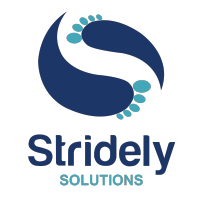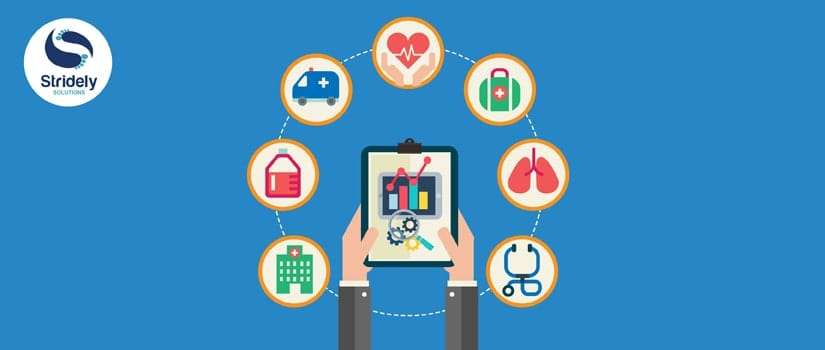There is no surprise that 2019 is revealing a confined demand for rising healthcare industry, and analytics that are operating higher efficiencies. Modernization in healthcare has resulted in ever-increasing biomedical knowledge bridging the gap between doctors, physicians and patients while diagnosing and treating.
EHR (Electronic Health Records) and EMR (Electronic Medical records) has been increasing continuously since last 20 years. EHR contains the historical data of the patient’s medical history. With the increase in EMRs, the EHR is deliberately increased. And with the help of big data, meaningful analytics is done and the willingness to get involved with Predictive analytics is the key to harness the power of historical data with the real-time.
Traditional way of deliberating patient outcomes with Operating costs
There comes a time, when everyone is patient at some time, and they need a good care. But good care is not only the constraint, the cost also matters. And traditionally, healthcare used to face the chasm of improving the patient outcomes along with the operating costs. It used to become difficult for the healthcare systems to satisfy the patients.
Though physicians have accessed massive amounts of data to stay updated with the latest research, they probably don’t have it all at their fingertips during the treatment. And there comes a time, when they twist and turn their plan for the treatment, and this leds the patient to repeatedly visit and consult them. Unfortunately, this also causes the patient going elsewhere to seek the treatment discouraging other patients who are seeking for treatment and moreover reduces the revenue opportunities. Not only revenue opportunities are reduced, but the healthcare units also aim to increase their resources, to get rid of patients’ drift. Research says,
According to the National Academy of Medicine (formerly the Institute of Medicine), the U.S. healthcare system spends almost a third of its resources — $750 billion annually — on unnecessary services and inefficient care.
Here is where predictive analytics comes into the picture. Predictive analytics overcomes to spend resources and uses the technology and statistical tactics to seek huge amounts of information, analyzing to predict the disease surveillance to incurable disease prevention to identifying patients who are at risk of deterioration.
Aiding treatment plans with Predictive Analytics
Predictive analytics is leveraging in the field of healthcare giving the accurate diagnosis of any disease. Let’s take for an example, if you are having a symptom of hair loss, it may indicate different disorders and disease. Now, thinking of all the disorders, physicians can make use of Predictive analytics that conducts the analysis of previous medical history to get the accurate diagnosis and adopt an early treatment plan.
Advancement in lives has also let increase in disease. This has pushed doctors to continuously seek for advanced solutions. So, Predictive analytics makes sure to get accurately diagnosed until it is too late for the patient to fight. Predictive analytics working with advanced genetic sciences helps to identify the patients who may be at risk and provides information to take preventive measures to overcome the disease.
Let’s take an example here to know on how take best treatment plans:
A Patient is described by a certain age, gender, medical history, the number of allergies etc etc. and he/she visits the healthcare to get their new diagnosed condition solved. Now, taking past data into account the search is done to find other patients of similar column. Based on these specific permutations, treatment plans are carried out. Moreover, the decision can also be carried out which treatment plan would be the best depending on the past patients’ cohort.
Here, the major data depends on normalized, centralized and standardized from different data sources that can be done effectively. And using this strategy the best possible treatment plan is concluded depending on the existing conditions and the observed outcomes. With the knowledge, patients can make their lifestyle changes to avoid risks if diagnosed at the early stage.
Use Cases for Predictive analytics in Healthcare
We have already discussed that Predictive analytics is used to diagnose the disorder or disease. But again, it is not only limited to diagnosed chronic conditions. It is also used for other data gathering processes. Let’s go through some of those.
Helpful to hospitals and employers to predict insurance product cost
It is impeccable today for any company to get insured to benefit employees. All in one, insurance company, healthcare unit and employees can use Predictive analytics to get the clear view of the costs they are incurring in a financial year.
Predictions depends on the company’s own data or the insurance companies with whom they work can have in their databases. They can synchronize the data to build subsequent health plans.
Helpful for physicians to get the detailed information about individuals
Predictive analytics has been a blessing for the doctors and the patients as it comes with the proof of concept for medicines helping physicians to get personalization health data that it related to the patient. And this helps for the best treatment plan for the patients on the basis of the data.
For example, patient suffering from the chronic cough, can be offered with the alternative medicine than a normal one with the help of Predictive analytics. This results in reducing the overall cost and side effects to the patients.
Helpful to pharmaceutical companies for proper medications
Predictive analytics seems to be the boon to the pharmaceutical companies. How? Well, Predictive analytics helps to offer an accurate along with the proof for the diseases that affects the people. And definitely it boosts the pharmaceutical companies to make medicines more in the quality predicting the diseases. This helps in reduction of resources, efforts and time.
Let’s take for an example, Predictive analytics for Autism is going to increase in US this year, this helps the company to manufacture more of the medicines to target US to cure the disorder.
Helpful for researchers to design best prediction models
Medical researchers can make use of Predictive analytics as a way to design prediction models to improve the accuracy. Even a small difference matters to the researchers and they can be statistically significant. But again, small but statistically significant differences are often not clinically significant. But the researches are always keen on those small findings as for them statistically significant differences can prove lethal for a clinical study.
And to the End..
Predictive analytics has a way to bring our attention to that which you have not seen before. Having new arsenal in the place, hospitals are better able to keep their patients from falling through the pains. Predictive analytics empowers the hospitals to go a way ahead with the resources they have to address the needs of all the patients.
This adoption is going to benefit all the industries related to the healthcare – physicians, pharmaceutical companies and the patients. And to the end changes are coming and Predictive analytics has been touted as a solution to many healthcare problems and as a golden key to the development of the life–threatening diseases.


